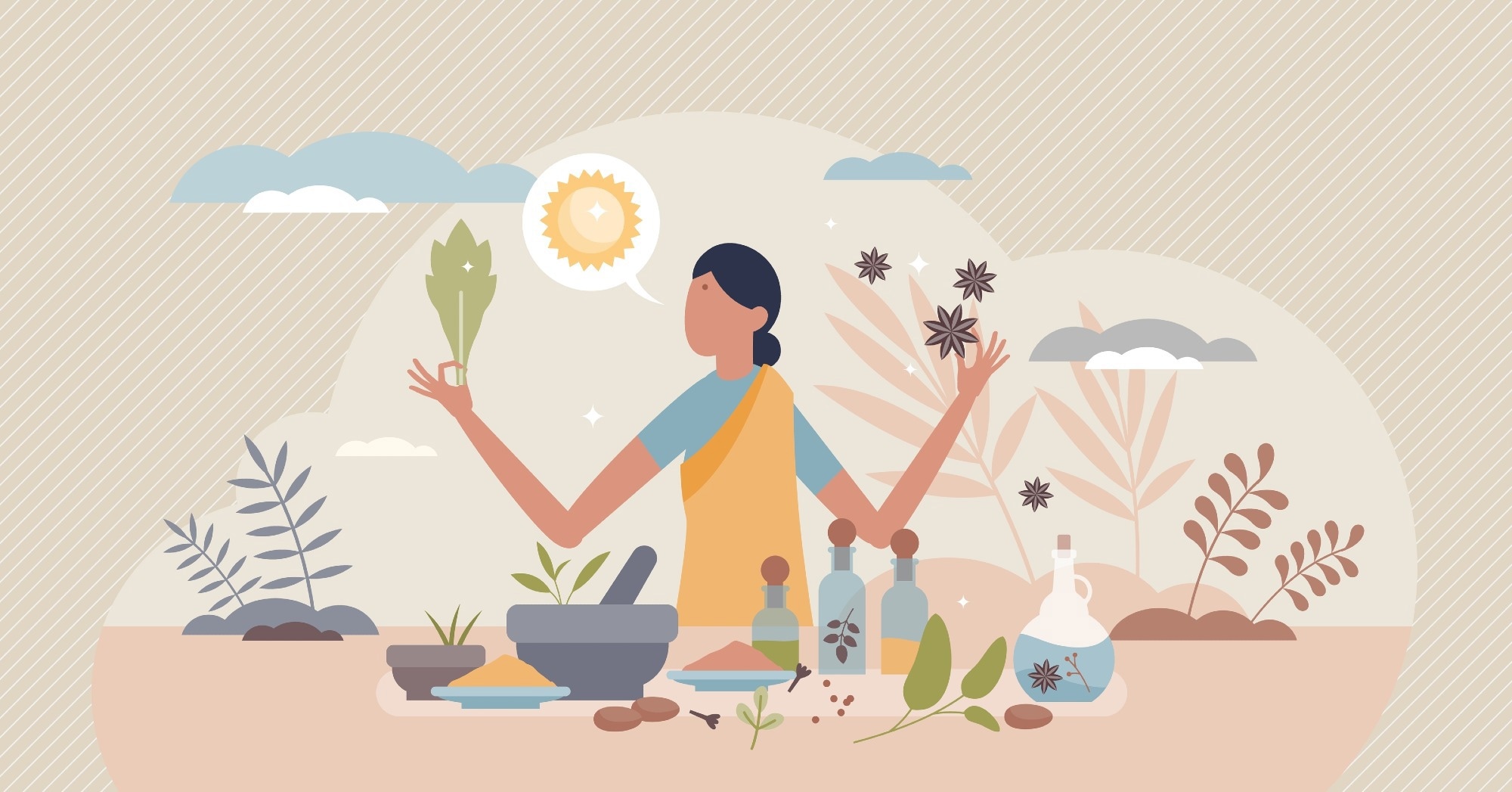Understanding holistic healing
What are some common holistic healing practices?
The Health Hexagon Model
References
Further reading
Understanding holistic healing
Holistic healing is a wellness approach that aims to concurrently improve physical, mental, emotional, social, and spiritual components of health. The main concept of holistic healing relies on the belief that all parts of the body are well connected. Thus, an improvement in the overall quality of life can only be achieved by addressing all body parts together during a healing process. The basic principle of holistic healing is to treat the whole person and not just the physical symptoms of illness that the person is experiencing.
Alternative and complementary therapies, holistic healing, natural healthcare, and integrative medicine are the most widely used terminologies to describe a range of healing practices that are not associated with pharmaceutical—or surgery-based treatments. The most common examples of such healing practices include yoga, meditation, acupuncture, and massage.
These holistic healing practices should be considered complementary approaches to conventional medicine and key components of integrative healthcare. They should not be treated as an alternative to conventional medicine.

Image Credit: VectorMine/Shutterstock.com
A massage or healing touch therapy could be effective for a cancer patient to recuperate their body while undergoing chemotherapy. However, it is not advisable for a cancer patient to completely refuse conventional cancer therapies and opt for holistic healing practices.
An integrative healthcare approach that combines conventional pharmaceutical treatments with non-pharmaceutical holistic healing methods is particularly needed for the best patient outcome.
Many medical practitioners have already started recommending plant-derived medicines and chiropractic (spinal manipulation, exercise, dietary planning) in parallel to conventional treatments for the faster and more holistic betterment of their patients. However, similar to conventional treatments, evidence-based risk-benefit analysis of the holistic healing process is necessary for its effective implementation in healthcare.
What are some common holistic healing practices?
More than a hundred types of holistic healing practices have been documented. Many new approaches and their variations are also emerging continuously. According to the National Center for Complementary and Integrative Health, USA, these holistic healing practices can be categorized into five groups, including alternative medical systems, mind-body interventions, biologically-based therapies, manipulative- and body-based methods, and energy therapies.
Alternative medical systems are complete systems based on non-pharmaceutical approaches, such as traditional Chinese medicines and Ayurveda. Mind-body interventions include all forms of behavioral, psychological, social, and spiritual approaches. Some common examples are relaxation sessions and cancer support groups.
Biologically based therapies mainly focus on plant-derived medicines and aromatherapy for holistic healing. Massage therapy and chiropractic come under body-based methods that rely on manipulation, touch, and movement of the physical body. Energy therapies, including healing touch and Reiki, utilize electromagnetic, ultrasonic, thermal, or subtle energy to heal.
What is Holistic Healthcare? | Regent University
The Health Hexagon Model
The “Health Hexagon Model” is one such holistic approach that includes six elements of health. The first three elements are diet, sleep, and exercise, which are considered vital factors for a healthy lifestyle. Insufficient sleep is associated with a number of health conditions, including cardiovascular and metabolic diseases and neuropsychiatric diseases.
Lack of physical activity also triggers various mental health issues and reduces overall quality of life. According to recent evidence, a poor diet can affect mood, cognition, pain, and anxiety via the gut-brain axis driven by gut microbiota.
The other three elements of the “Health Hexagon Model” include exposure to nature, social connections and friendships, and a sense of purpose, meaning, or sacredness.
Social support systems and close social relationships are known to benefit physical and mental health by reducing stress, loneliness, anxiety, and depression and improving overall quality of life. Health risks associated with poor social relationships can be compared with biomedical risk factors such as obesity, physical inactivity, and smoking.
Ayurveda in the 21st Century
Exposure to nature in any form, such as gardening, exercising in a green environment, or looking at nature through a window, is known to improve mental and physical health, cognition, and well-being. However, modern lifestyle has created a disconnection between humans and nature.
A sense of purpose, meaning, or sacredness is an old basic human need, and its impact on mental health has received sufficient treatment by psychologists, including in the form of humanistic and existential psychotherapies.
All six elements of the “Health Hexagon Model” have been studied separately in the context of mental and physical health issues. However, for a holistic healing approach, these elements should be considered as highly interconnected. Such models provide an opportunity to address the body, mind, and the transcendental concurrently.
Complete holistic care for pandemic-affected people can be achieved by adopting holistic healing models that concurrently consider treatment for physical and psychological symptoms, anticipatory measures (complex decision-making, prognostication, advanced directives, anticipatory prescription), proper communication, and emotional and spiritual support.
References
Further Reading
Last Updated: Jul 30, 2024